Wild Animals (Not commonly kept as pets)
Wild Animals (Not commonly kept as pets)
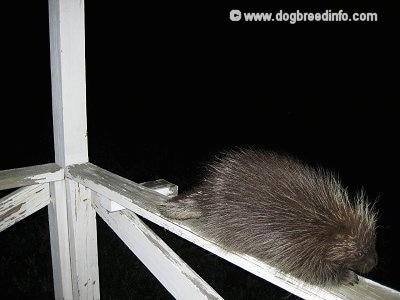
Very cute porcupine walking around the porch of a cabin in central Pennsylvania. The majority of the time this cabin is not occupied and the porcupine was very surprised when four 13-year-old girls showed up. The porcupine was attracted to the salty taste of the treated wood. This cute little porcupine earned his name that day; he is officially "Wilbert."
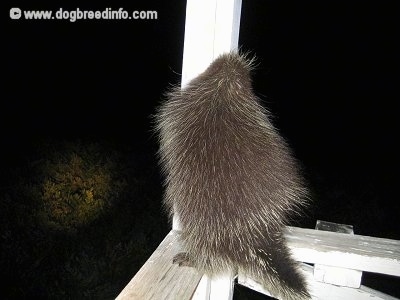
Porcupine walking around the porch of a cabin in central PA.
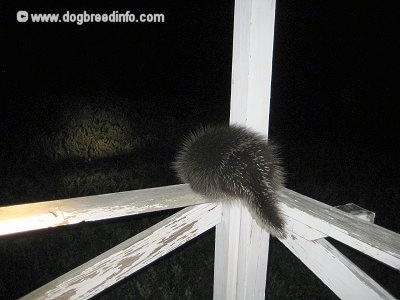
Porcupine walking around the porch of a cabin in central PA.
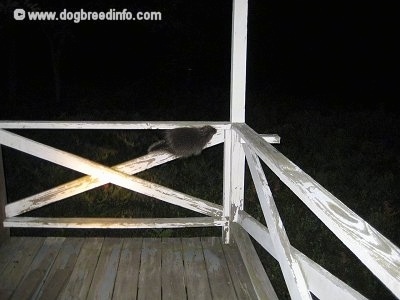
Porcupine walking around the porch of a cabin in central PA.
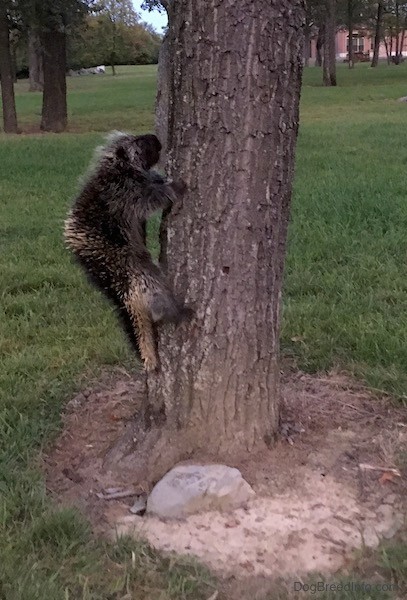
Porcupine climbing up a tree spotted in central PA, USA
Porcupines are nocturnal, which means they are active at night and sleep during the day. This porcupine was resting high up in the top of this tree in central PA. Porcupines are the second largest rodents in North America. They are one of the few animals, like the skunk, that want to be seen, because their only defense is their sharp, approximately 30,000 quills and they want others to know what they are and be wary of them. Porcupines move slowly. They do not hurt you unless you try to touch them. They cannot throw their quills. In order for the quills to become embedded, you have to touch the porcupine. About 75 mm long and 2 mm wide, the needle-sharp quills detach very easily and will remain embedded in an attacker. They have microscopic, backwards-facing barbs on the tip that catch on the skin, making them difficult and painful to extract. If a quill becomes lodged in the tissue of a would-be attacker, the barbs act to pull the quill further into the tissue with the normal muscle movements of the attacker, moving up to several millimeters in a day. Predators have been known to die as a result of quill penetration and infection. Quills are still capable of penetrating animals and humans even after a porcupine’s death.
Porcupine in central PA hides up in a tree.
Porcupine in central PA hides up in a tree.
Porcupine in central PA hides up in a tree.
Porcupine in central PA hides up in a tree.
Porcupine in central PA hides up in a tree.
Porcupine in central PA hides up in a tree.